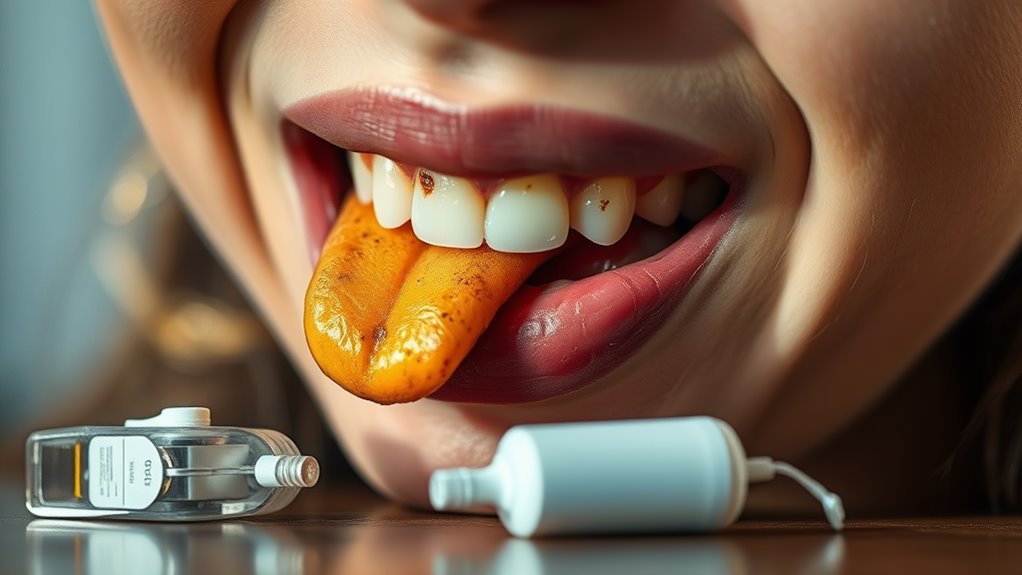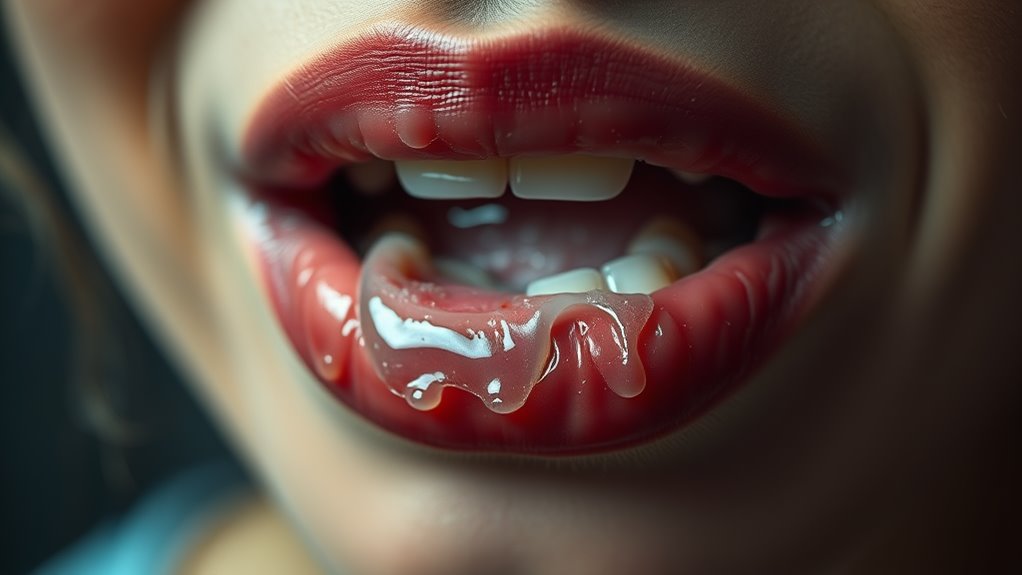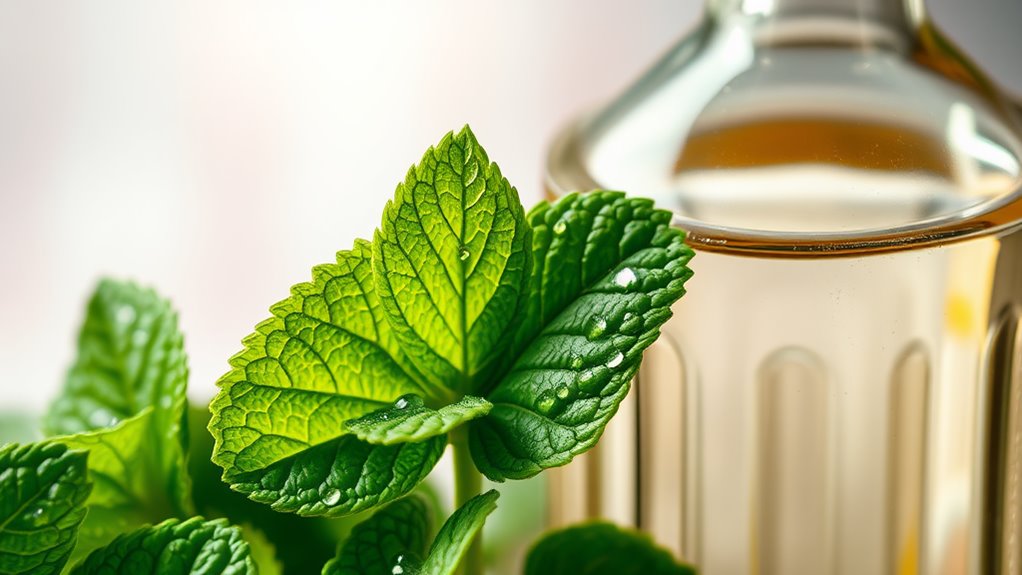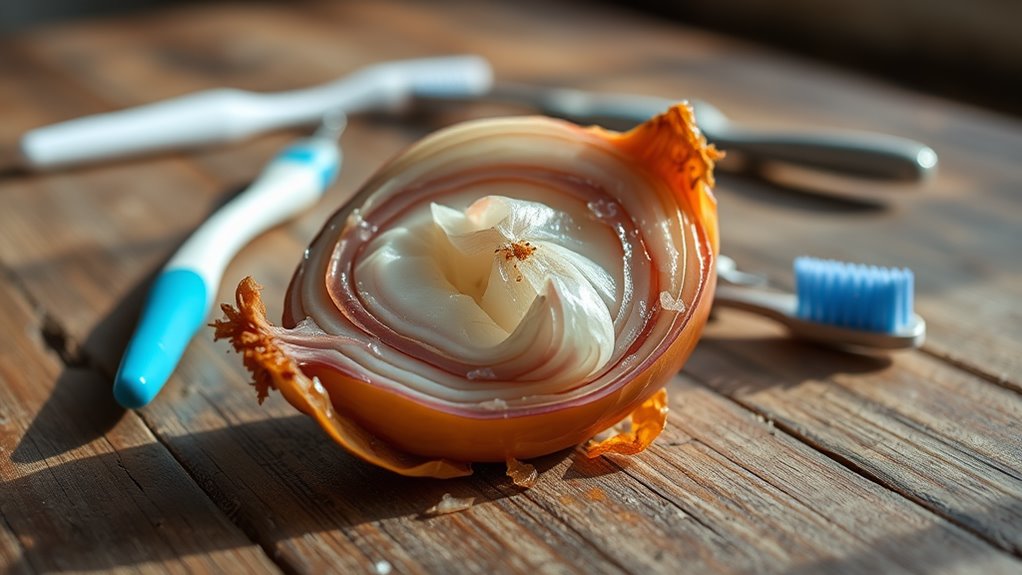This Common Habit Is Making Your Breath Smell WORSE!
You might not realize it, but skipping regular brushing and flossing could be the reason your breath smells worse. When you neglect these basic habits, bacteria thrive on food particles and plaque, creating an unpleasant odor. Relying on mouthwash alone won’t solve the problem either. It’s essential to understand what’s really happening in your mouth. Curious about how to turn things around? Let’s explore some effective strategies for a fresher breath.
The Role of Oral Bacteria in Fresh Breath
When you think about fresh breath, it’s easy to overlook the role of oral bacteria. These tiny organisms are a natural part of your mouth, but some bad breath habits can lead to an imbalance.
If you skip brushing or neglect flossing, bacteria thrive and produce sulfur compounds, resulting in unpleasant odors. You mightn’t realize that certain foods can also contribute to this problem. Garlic and onions are delicious but can linger on your breath long after you’ve eaten.
Drinking water and chewing sugar-free gum can help flush away those odor-causing bacteria, making your breath fresher. Additionally, maintaining healthy oral habits is vital for fresh breath and overall oral health.
Understanding Mouthwash: Benefits vs. Risks
Maintaining fresh breath often leads people to consider mouthwash as a quick fix. While it can temporarily mask odors, you should know there’s more to the story.
Mouthwash offers benefits like killing bacteria and providing a refreshing taste, helping you feel confident in social situations. However, it’s essential to understand the potential risks. Some mouthwashes contain alcohol, which can dry out your mouth, leading to an increase in bad breath over time.
Additionally, relying solely on mouthwash can prevent you from addressing the root causes of odor. Regular brushing and flossing are crucial for oral health and combating persistent bad breath. If you want to belong to a community that values fresh breath, consider a balanced approach.
Combine mouthwash with regular brushing, flossing, and staying hydrated. This holistic method not only combats bad breath but also fosters healthy habits, making you feel more connected to those around you.
Embrace a routine that works for you and enhances your sense of belonging.
How Excessive Mouthwash Use Affects Oral Health
Although many people rely on mouthwash for a quick breath freshening, excessive use can have unintended consequences for your oral health. Relying too heavily on mouthwash can disrupt the natural balance of bacteria in your mouth. While it kills harmful bacteria, it can also eliminate the good ones your mouth needs to stay healthy. This imbalance may lead to issues like dry mouth, which can worsen bad breath.
Moreover, some mouthwashes contain alcohol and other harsh ingredients that can irritate your gums and soft tissues. Over time, this irritation can contribute to more serious oral health problems, like gum disease. Additionally, overuse of mouthwash can disrupt the oral microbiome, which is essential for maintaining a healthy mouth.
Instead of overusing mouthwash, consider focusing on a balanced oral care routine that includes regular brushing, flossing, and dental check-ups. By doing so, you’ll not only keep your breath fresh but also nurture your overall oral health—helping you feel confident and connected with those around you.
Signs That Your Breath Is Deteriorating
Relying too much on mouthwash can mask underlying issues, including the deterioration of your breath. If you notice any of these signs, it’s time to pay attention:
-
Persistent bad taste: If you frequently experience a bitter or sour taste in your mouth, it might indicate bacteria build-up or dental issues.
-
Dry mouth: A lack of saliva can lead to bad breath. If your mouth often feels dry, you may need to reassess your hydration or oral hygiene habits.
-
Changes in breath odor: If friends or family start to comment on your breath, don’t brush it off. This can be a clear signal that something’s off. Proper oral hygiene practices are essential to combatting these problems.
Being part of a community means caring about how you’re perceived. Staying aware of these signs can help you maintain fresh breath and connect with others confidently.
Alternative Strategies for Fresh Breath
To keep your breath fresh, consider incorporating a few alternative strategies into your daily routine. These simple tips can make a big difference and help you feel confident in social situations.
| Strategy | Description |
|---|---|
| Stay Hydrated | Drink plenty of water to wash away bacteria. |
| Chew Sugar-Free Gum | Stimulates saliva production, freshening breath. |
| Eat Crunchy Fruits & Veggies | Apples and carrots help clean your teeth naturally. |
| Use Essential Oils | Peppermint or tea tree oil can be natural breath fresheners. |
Additionally, addressing dry mouth is vital to prevent persistent bad breath.
Developing a Balanced Oral Care Routine
When you prioritize a balanced oral care routine, you not only enhance your breath but also protect your overall oral health.
To achieve this balance, focus on these three essential steps:
-
Brush Twice Daily: Make it a habit to brush your teeth for two minutes, morning and night. This removes food particles and plaque that cause bad breath.
-
Floss Daily: Don’t skip this crucial step! Flossing removes debris stuck between your teeth, where your brush can’t reach, keeping your mouth fresh.
-
Stay Hydrated: Drink plenty of water throughout the day. Staying hydrated helps wash away food particles and bacteria, preventing dry mouth and unpleasant odors.




